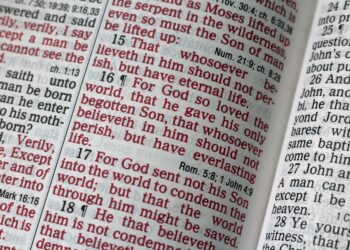Religious conversion refers to the change of a person’s religious beliefs or practices. This type of change can happen for a number of different reasons, including personal growth, marriage, spiritual needs, the influence of friends and family, or a desire to find a new community. However, religious conversion can raise ethical questions, especially when one religion tries to convert people from another. In this article, we will discuss the ethics of religious conversion.
First, it’s important to recognize that people have the freedom to choose their own religion. Religious freedom is a fundamental human right that is protected by international law. This means that no one should be forced to follow a particular religion. It is important to respect the religious choices and beliefs of others.
However, while people have the right to follow any religion they choose, it is also important to acknowledge the moral responsibility that comes with religious conversion. When one religion attempts to convert followers of another religion, the lines between persuasion and coercion can be blurred. This can lead to ethical issues, such as manipulation or taking advantage of vulnerable individuals.
In some cases, religious conversion can be seen as a form of cultural imperialism. Historically, certain groups of people have tried to impose their religious beliefs on others. This can be seen as a way of exerting power over another group. Religious conversion can only be done ethically if the person who is converting truly believes that the new religion is the best path for them. Simply trying to get others to join their religion because it is “the right way to live” can be seen as a form of cultural aggression.
Another ethical issue that arises with religious conversion is the problem of intolerance. When people try to impose their religious beliefs on others, it can lead to intolerance and conflict. People with different religious beliefs can coexist, but only if they respect each other’s beliefs. It is important to remember that religious diversity is a fact of life and that everyone has the right to practice their religion as they see fit.
Finally, it’s important to note that personal religious conversion is not the same as institutional or systematic forms of religious conversion. Governments, organizations, and institutions that use manipulative or unethical methods to convert people to their religion are practicing intolerance and violating the basic human rights of individuals. Religious conversion becomes problematic when it is used as a tool of imperialism, in which one religion attempts to dominate another.
In conclusion, religion is a personal choice that people have the right to make. It is essential that religious conversion respects the ethical principles of freedom, tolerance, and respect for others. Individuals have the right to practice their religion without fear of discrimination or oppression. It is the responsibility of all of us to ensure that religious beliefs are valued and respected without imposing them on others. It is only through mutual respect and acceptance that we can coexist and build a more peaceful world.













